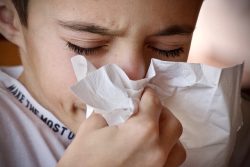Menopause is barreling down with a ferocity that is difficult to ignore. Like many women my age, I’ve had my share of health challenges and, until recently, blindly trusted the pharmaceutical industry to fix all that ailed me. Health by chemistry was a great thing; oral contraceptives, a fabulous invention, allergy meds – ditto, pain killers – wonderful, and on, and on. Take a pill and feel better, isn’t that what we all want? But I, like so many women, have lost faith in pharmaceuticals. It’s not because the science isn’t cool, it is, in every area of pharmacology, except women’s hormone therapies. Here, intellectual curiosity and innovation have been replaced by status quo. Little has changed in this area of hormones and health in 60 years.
Hormones, Hormones, Everywhere and No Innovation in Sight
Since their inception, hormone replacement therapies (HRT) and oral contraceptives have dominated women’s health, immediately moving from seemingly narrow applications when first introduced to the almost mythical status as cure-alls for any female and many general health ailments. The history of both these pills is strikingly inglorious and utterly dumbfounding. Just on general principle, why would anyone believe any medication could be so widely beneficial for so many apparently disparate conditions? It is physiologically impossible.
For HRT especially, if one believes the marketing, the pills provide a veritable fountain of youth. Where is the science? But believe we did, and generations of women may now be paying the consequences.
From the very first estrogens synthesized and marketed to women everywhere (diethylstilbestrol- DES), through today’s HRTs and OCs, profit appears to override health concerns. Even in the 1930’s and 1940s before these drugs came to market, the carcinogenic risks were well known, and yet, they garnered FDA approval and were sold to millions, upon millions of women.
Synthetic Hormones
I have personal experience only with the often ignored side effects of oral contraceptives, as I have yet to reach the age of menopause. In my 20s, while on the presumable high estrogen dose of oral contraceptives that were common then, I had intense bouts of vertigo that would develop even when lying down and ever increasing blood pressure. After years of expensive testing could find no neurological cause for the vertigo and after repeated prescriptions to lower my blood pressure, I stopped taking the pill. I had enough. The vertigo stopped fairly soon thereafter and the blood pressure returned to normal. Over those several years, there was not a single physician that suggested I stop taking the pill, indeed I was prescribed more and more meds to counter the apparently unknown side effects of oral contraceptives and it was recommended I see a shrink because the vertigo had to be psychosomatic.
I look back at that time and I wonder how many other women suffered similar circumstances. What is this propensity to prescribe and continue prescribing medications in the face of apparent ill effects? Why are we ignoring, even at the patient level, the possibility that some meds may not work for some women (or men). The statistics bear this out, but there seems to be a natural inclination to minimize these risks. This is compounded of course, by intense marketing.
As I approach this menopausal stage, I again will be faced with yet another hormone-issue for which the choices are bad and worse. We know from the Women’s Health Initiative (WHI) in 2002, that HRT is not the panacea it was marketed to be and the risks associated with this medication are not benign.
Over a one year period, for every 10,000 women taking and estrogen plus progestin, the risk of developing these conditions increases by:
• Heart disease: 7 additional cases
• Breast cancer: 8 additional cases
• Stroke: 8 additional cases
• Blood clots: 18 additional cases
For estrogen only:
• Stroke: 12 additional cases
• Blood Clots: 6 additional cases
Consider however, the millions of women who will take or have taken HRT for years. As of 2010, over eight million women in the US alone take HRT, and will likely do so for at least a couple years. In this light, the increased risk of disease looks a lot scarier.
• Heart disease: 5600 new cases per year; 28,000 in five years
• Breast cancer: 6,400 new cases per year; 32,000 in five years
• Stroke: 6,400 new cases per year; 32,000 in five years
• Blood clots: 14,400 new cases per year; 72,000 in five years
When the WHI was published, some 17 million women in the US had been taking HRT for many, many years, even decades. That’s 13,600 new cases of breast cancer per year, 68,000 in five years! Despite these data, and the thousands of lawsuits that followed, HRT is still one of the most frequently prescribed medications worldwide. I think we can do better.
Statistics from the Mayo Clinic
We Need Your Help
Hormones Matter needs funding now. Our research funding was cut recently and because of our commitment to independent health research and journalism unbiased by commercial interests we allow minimal advertising on the site. That means all funding must come from you, our readers. Don’t let Hormones Matter die.











I’m experiencing pre-menopause and suffer thru night sweats and an occasional hot flash, but haven’t taken the HRT plunge. While I think far too many people think of menopause as a disease that needs to be treated rather than a stage of a woman’s life, I also think think we shouldn’t just necessarily roll over and accept our inevitable decline. With new developments in bio-medicine I predict many of us we’ll soon be able to experience the benefits of youthful hormones well into “senior years”. Individual genomics testing will be able to determine if a women is at higher risk for blood clots and, thus, how safe HRT is for her. There’s even talk of artificial ovaries which will be able to measure the level of hormones in the bloodstream and adjust their levels by using bioidentical replacements on a minute-by-minute, day-by-day basis.
My doctor has advised against taking it – because of the increased risks of breast cancer particularly. My sister in law and an older mentor, an ex-favourite teacher of mine both swear by it; they are in their 60’s and 70’s respectively. I err on respecting my doctor’s advice.